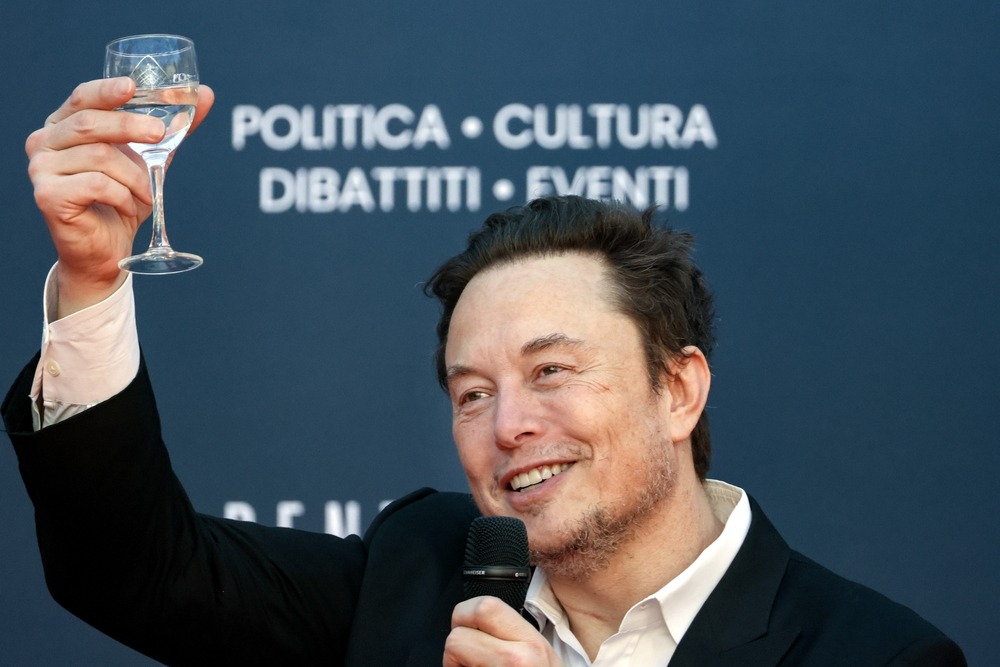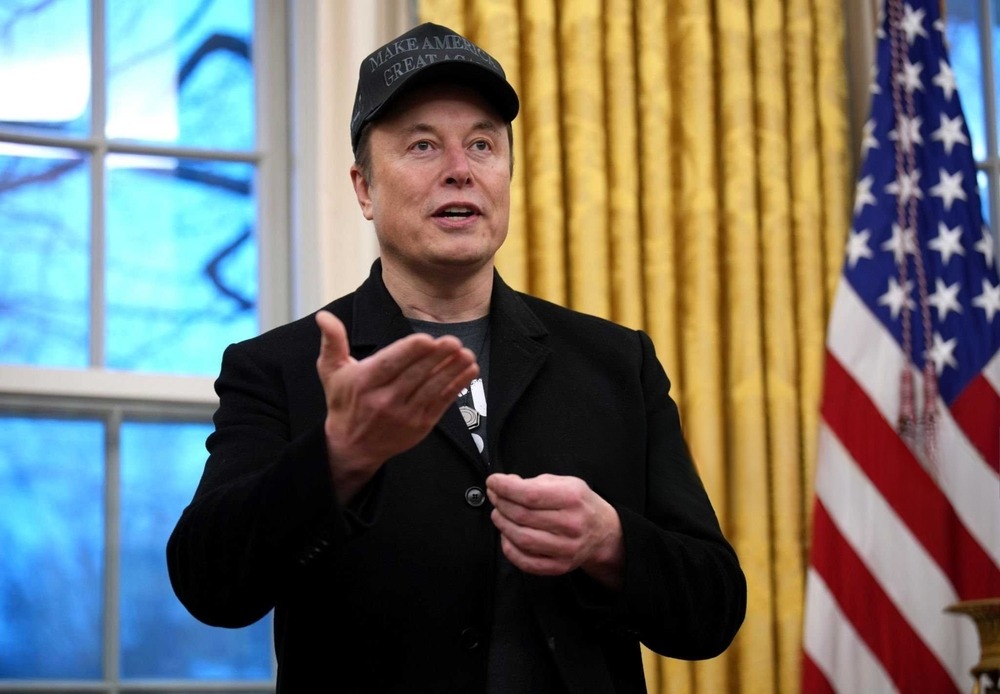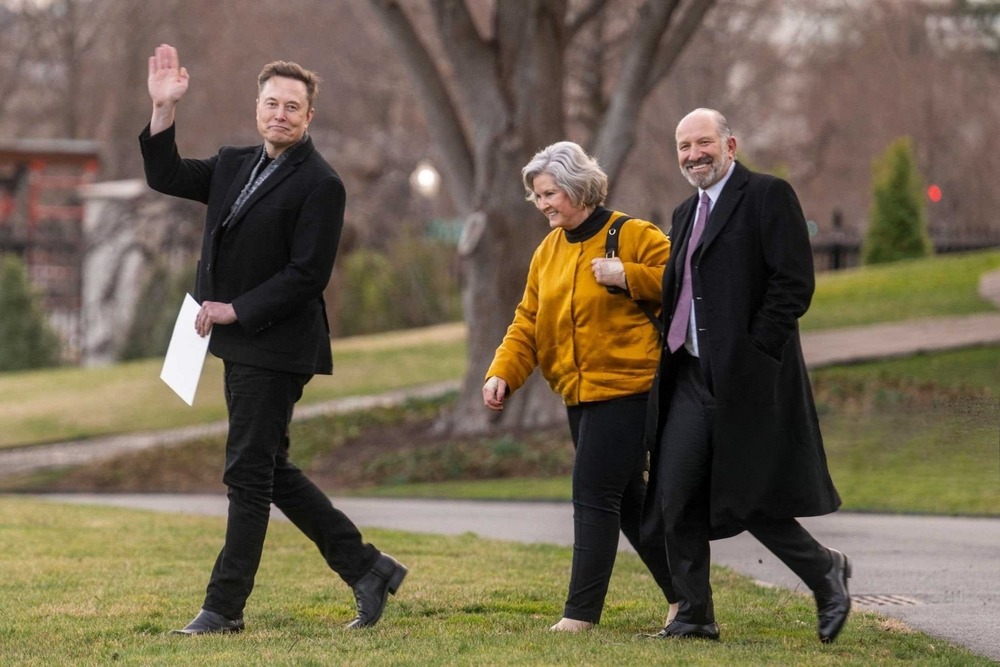Elon Musk Exits White House in Embarrassing Retreat as Tesla Crumbles and Public Turns.
Elon Musk is quietly slinking back to the private sector after a chaotic stint in the Trump administration, marked by sweeping federal job cuts, mounting public backlash, and plummeting Tesla sales. His sudden departure—officially just the "scheduled end" of his temporary government role—follows months of intensifying criticism, both inside and outside Washington, and appears to confirm what many suspected: Musk’s political meddling has badly damaged his public image, his business, and perhaps his legacy.

In a post on his social media platform X, the billionaire attempted to spin his exit as a dignified transition.
"As my scheduled time as a Special Government Employee comes to an end, I would like to thank President @realDonaldTrump for the opportunity to reduce wasteful spending," Musk wrote.
"The @DOGE mission will only strengthen over time as it becomes a way of life throughout the government."
But the reality appears far less triumphant.
Musk had been heading the Department of Government Efficiency (DOGE), an initiative championed by Trump to drastically shrink the federal government. The effort resulted in the slashing of an estimated 260,000 federal jobs, triggering chaos across agencies and lawsuits from unions and civil rights groups. In several cases, judges ordered unlawfully fired workers to be reinstated—including staff involved in sensitive national security projects.
RELATED: US Halts Student Visa Appointments Amid Plans for Expanded Social Media Vetting.
The billionaire's presence in the White House was always controversial, but his tenure reached a low point this week. Just one day before his exit, Musk publicly criticized Trump's massive budget bill, calling it fiscally irresponsible and self-defeating.
"I think a bill can be big or it could be beautiful," Musk said in an interview with CBS. "But I don't know if it could be both."

He accused the legislation—which proposes trillions in tax cuts and a defense spending hike—of undermining DOGE’s purpose, admitting it would balloon the deficit rather than shrink it.
This latest turn marks a dramatic reversal for the once-confident mogul, who had boasted of cutting “at least $2 trillion” from the federal budget. That goal was later reduced to $1 trillion, then to a mere $150 billion. Even those figures proved illusory as political blowback and legal challenges piled up.
Behind the scenes, Musk reportedly clashed with senior Trump officials. But more troubling for him may be the damage to his corporate empire.

Since stepping into the political spotlight, Tesla has seen a 13% drop in vehicle deliveries—the worst in its history—and its stock has fallen by up to 45%, though some of those losses have since rebounded. Musk admitted on a recent investor call that DOGE was consuming too much of his time and pledged to refocus on the business.
"The time I allocate to DOGE will drop significantly," he told investors. "I will be allocating far more of my time to Tesla."
The optics couldn’t be worse. As Musk spent time gutting federal agencies and praising Trump, activists staged protests outside Tesla dealerships, spray-painting cars and vandalizing charging stations. Attorney General Pam Bondi warned that some of these acts would be prosecuted as "domestic terrorism"—a signal of how explosive Musk’s political involvement had become.
RELATED: Trump's Tariffs Set to Hit the Economy: Inflation, Job Losses, and Slow Growth Ahead.
At a forum in Qatar earlier this week, Musk seemed to admit defeat, pledging to remain CEO of Tesla for the next five years and announcing that he would dramatically scale back political donations after pouring nearly $300 million into GOP campaigns last year.
DOGE, once billed as a revolutionary idea, is now politically radioactive. Even Musk himself acknowledged the damage.
“Doge is just becoming the whipping boy for everything,” he told The Washington Post. “Something bad would happen anywhere, and we would get blamed for it even if we had nothing to do with it.”

The truth is, Musk had everything to do with it. He stepped into Washington expecting to be hailed as a visionary disruptor. Instead, he leaves as a scapegoat—scorned by the left, used by the right, and losing the public's trust across the board.
His attempt to reshape government turned into a messy, humiliating debacle. Now, as Tesla falters and his popularity erodes, Musk is retreating from the public arena—not with a triumphant legacy, but with his tail firmly between his legs.
What was once a brand synonymous with innovation and bold ideas is increasingly seen as an ego-driven empire run by a man who thought he could do everything, but is now struggling to salvage anything.














